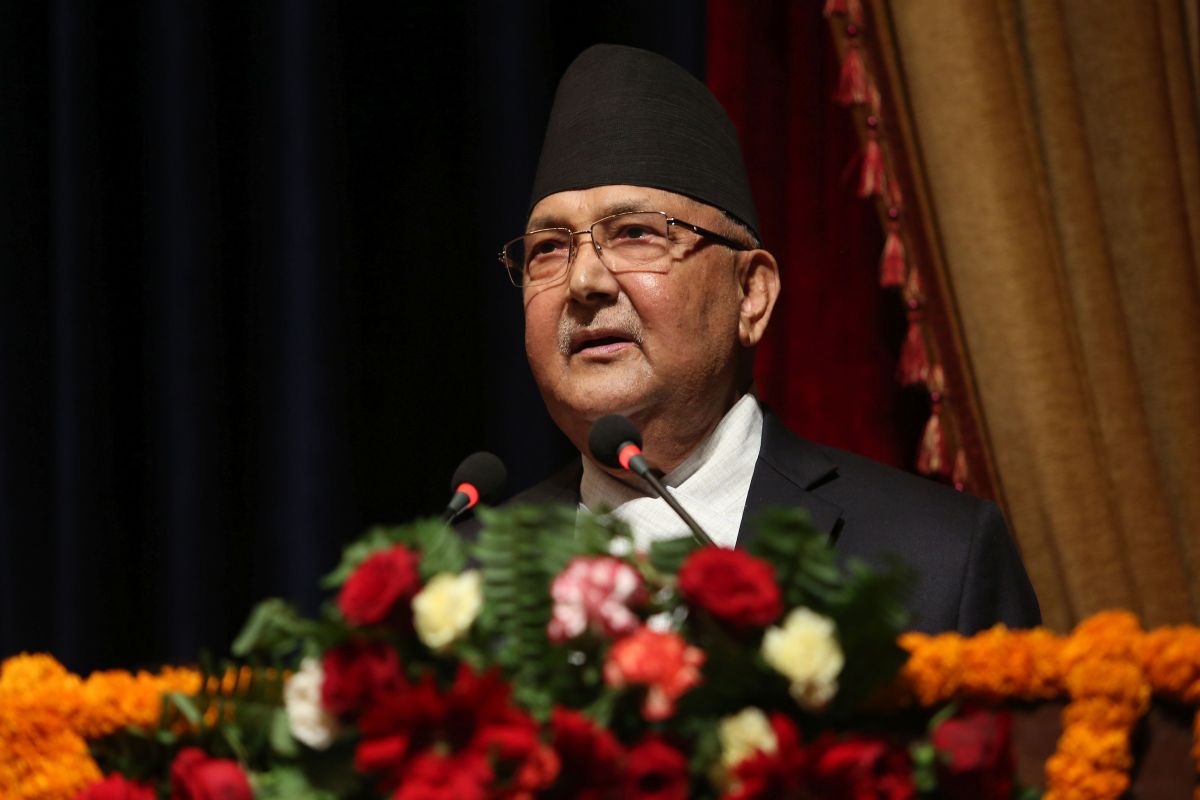Nepal Prime Minister KP Oli is at it again, unfortunately, this time steering his country into an inflexion point for the fledgling democracy that the country was attempting to establish after decades of instability.
On Sunday morning, in an apparent fit of pique, Mr Oli recommended dissolution of Parliament ~ which was approved by the President with alacrity ~ and holding a general election in April-May next year, more than a year ahead of schedule.
Advertisement
There are two valid criticisms of the Prime Minister’s decision to call a snap election and the President acquiescing to it without a murmur despite, rather ominously, Mr Oli reportedly looking at imposing a state of Emergency. First, his sudden move to dissolve the House of Representatives, which the Opposition and civil society groups have termed a Constitutional coup, is being seen as a vindictive manifestation of his authoritarian streak as it stems largely from the feud in the ruling dispensation led by the Nepal Communist Party.
Mr Oli was clearly coming off worse in the intraparty political fight ~ his opponents in the NCP seemed to be on the verge of forcing him to step down. As many as 90 lawmakers had, in the meanwhile, filed a no-confidence motion against him.
The spark in the battle of attrition between Mr Oli and former Maoist leader Pushpa Kamal Dahal was provided by the PM’s move to ram through an ordinance on the Constitutional Council Act which his own party condemned as “unconstitutional and undemocratic”.
Last Tuesday, Mr Oli introduced the ordinance which would make it easier for him to appoint officials to Constitutional bodies including the Commission for Investigation of Abuse of Authority. The result was a near-revolt in the NCP and widespread public criticism.
On Wednesday, the PM agreed to revoke the ordinance but in an astonishingly brazen volte-face he instead called a meeting of the Constitutional Council and made key appointments including that of a loyalist as chief of Nepal’s anti-graft commission.
Faced with a nationwide outcry led by the Dahal faction of his party, a cornered Mr Oli called the snap poll.
Secondly, according to leading Constitutional experts, the PM in recommending the dissolution of parliament has exercised powers he does not possess. For, in a bid to ensure stability given frequent government changes and the past experience of attempts to dissolve the House by PMs for purely political reasons, the Constitution clearly stipulates that, unlike in India, a Prime Minister commanding a majority cannot dissolve the House.
All eyes are now on the Supreme Court where petitions against Mr Oli’s decision have been filed. Whatever their fate, the Prime Minister would do well to keep in mind that those of his predecessors who dissolved parliament did very poorly in the poll that followed.











